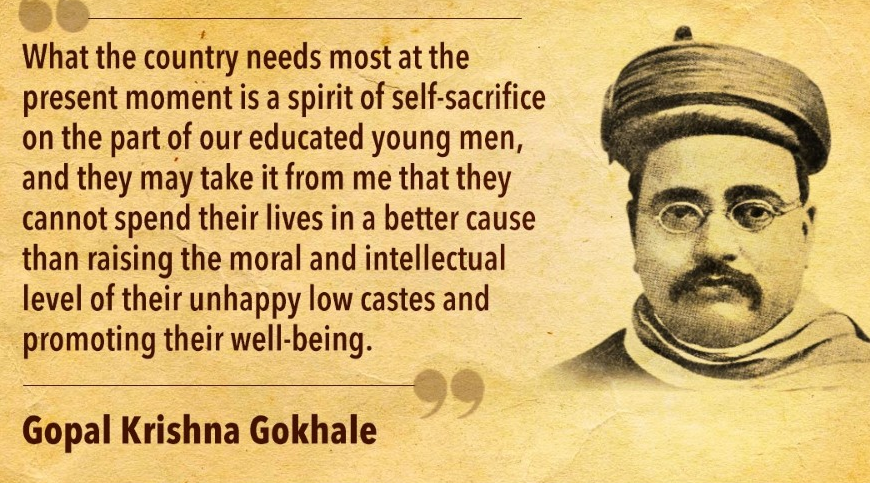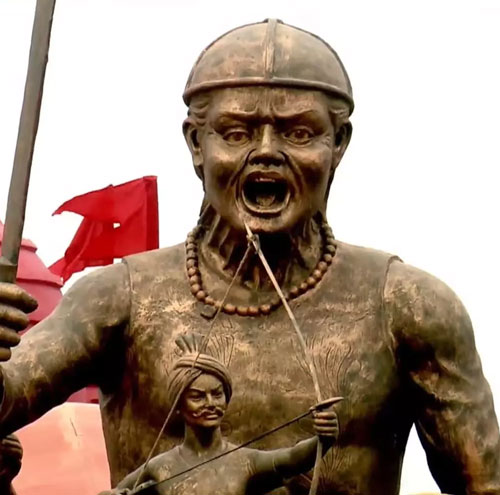Gopal Krishna Gokhale-BIOGRAPHY || Gopal Krishna Gokhale & Essay- About Life HISTORY
Gopal Krishna Gokhale: Gopal Krishna Gokhale was one of the pioneers of the Indian National Movement. He was a senior leader of the Indian National Congress.

Gopal Krishna Gokhale-BIOGRAPHY
Gopal Krishna Gokhale: Gopal Krishna Gokhale was one of the pioneers of the Indian National Movement. He was a senior leader of the Indian National Congress. Gokhale offered a voice to the goals of a great many Indians who were searching for an opportunity from the British guideline. Gandhiji considered him as his political guru.
He founded the “Servants of India Society” an organization dedicated to the cause of common people. Gokhale’s commitment to the creation of Indian country is invaluable. Gopal Krishna Gokhale was born on May 9, 1866, in Kolhapur, Maharashtra. His father Krishna Rao was a rancher who was compelled to function as an assistant, as the dirt of the district was not favorable for agribusiness.
Gokhale got his initial instruction at the Rajaram High School in Kolhapur with the assistance of monetary help from his senior brother. Later on, he moved on to Bombay (now Mumbai) and graduated from Elphinstone College, Bombay (now Mumbai) in 1884 at the age of 18.
Gopal Krishna Gokhale & Essay- About Life HISTORY
He was one of the first generations of Indians to receive a college education. Gokhale was respected widely in the nascent Indian intellectual community and across India. Education influenced Gokhale greatly. His comprehension of the English language enabled him to communicate decisively and with most extreme lucidity.
His gratefulness and learning of history ingrained in his regard for freedom, vote based system, and the parliamentary system. After graduation, he moved on to teaching and took a position as an Assistant Master in the New English School in Pune.
In 1885, Gokhale proceeded onward to Pune and wound up one of the establishing individuals from Fergusson College, alongside his associates in Deccan Education Society. Gopal Krishna Gokhale gave nearly two decades of his life to Fergusson College and rose to become the principal of the college. During this time, he came in contact with Mahadev Govind Ranade.
Ranade was a judge, researcher, and social reformer, whom Gokhale called his guru. Gokhale worked with Ranade in Puna Sarvajanik Sabha of which he became the secretary. Gopal Krishna Gokhale entered open life in 1886 at 20 years old. He conveyed an open location on “India under the British Rule”, which was very appreciated.
He regularly contributed articles to Bal Gangadhar Tilak’s weekly, Mahratta. Through his articles, he attempted to stir the inert nationalism of Indian individuals.Before long, Gokhale was advanced as secretary of the Deccan Education Society.
When the Indian National Congress held its session in Pune in 1895, he was the secretary of the Reception Committee. From this session, Gokhale turned into a conspicuous individual from the Indian National Congress. He was twice elected as president of Pune Municipality. For a while, Gokhale was also a member of the Mumbai Legislative Council, where he spoke strongly against the then Government.
In 1902, he left the Fergusson College and turned into an individual from the Imperial Legislative Council in Delhi. There he represented the general population of the nation in a capable manner. Gokhale had an excellent grasp of the economic problems of India, which he ably presented during the debates.
In 1905, Gokhale began another general public called “Workers of India Society”.This general public prepared laborers for the administration of the country. In the same year, he went to England to voice his concerns relating to the unfair treatment of the Indian people by the British government. In a span of 49 days, he spoke in front of 47 different audiences, captivating every one of them. Gokhale argued for progressive changes to at last accomplish Swaraj, or self-government, in India.
He was instrumental in the introduction of the Morley-Minto Reforms of 1909, which eventually became law. Though the changes planted the seeds of collective division in India, by the by, they gave Indian access to the seats of the most noteworthy expert inside the legislature, and their voices were more audible in matters of public interest.
Gopal Krishna Gokhale was diabetic and asthmatic. Excessive exertion took its toll on Gokhale’s health and ultimately, he died on February 19, 1915.





